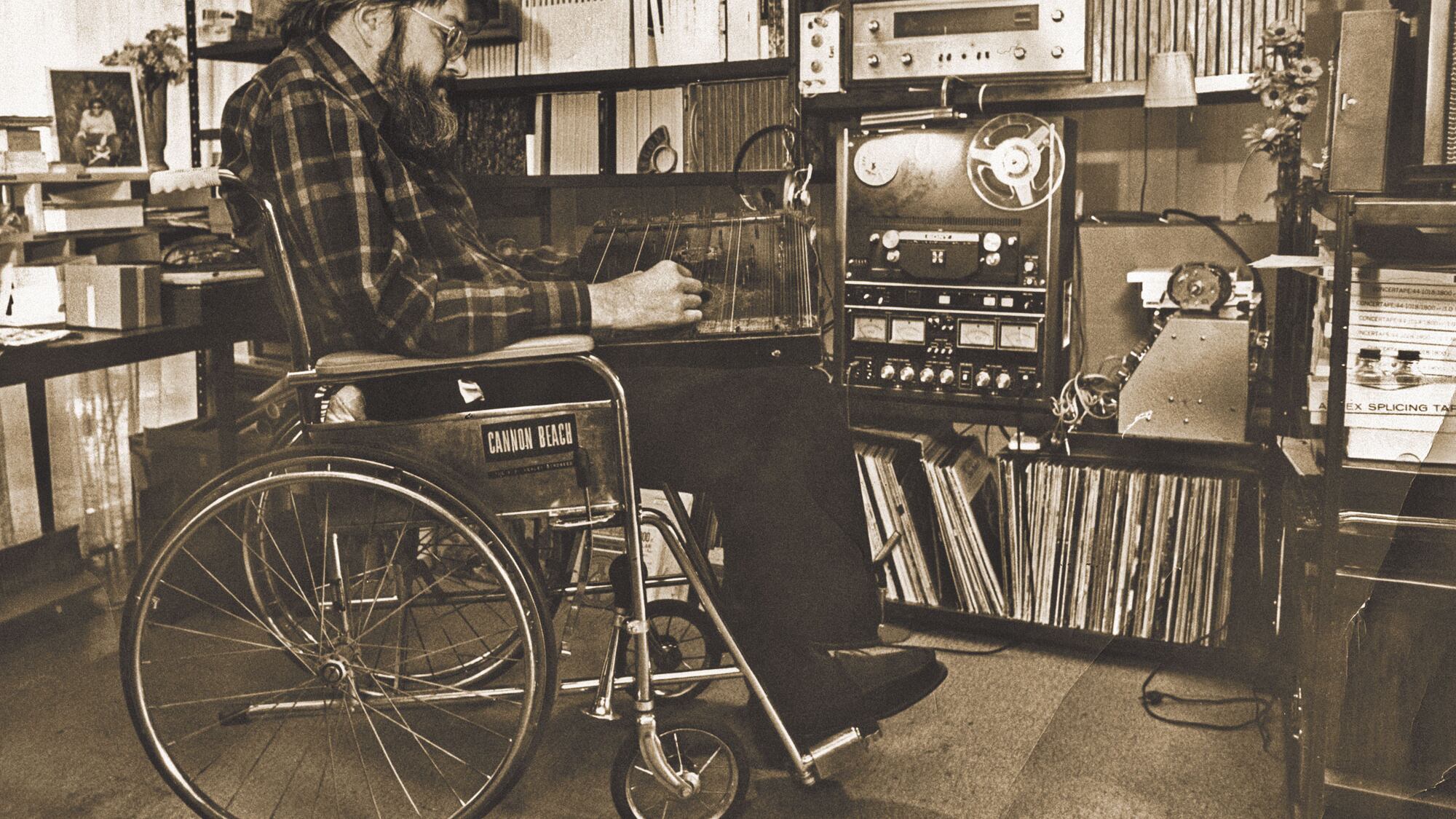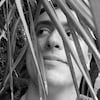When Pete Swanson moved from Corvallis to Portland in the '90s, there were a few LPs he'd always see behind the counter of record shops. Most were by Portland punk royalty like the Wipers, Poison Idea, Dead Moon. But one mysterious record always stuck out to him: Ernest Hood's Neighborhoods. Often going for $200 or $300, the album's sleeve was adorned with a quaint photograph of a city street and the title in flowery letters.
"It was something that always looked very corny to me," says Swanson, who's best known for his noise music and currently lives in L.A. "The original record looks like an old-timey folk record."
But Ernest Hood's 1975 album is nothing of the sort. It's a little-known piece of Portland musical history, made by a man whose fingerprints are all over the city, even though he's hardly a household name. On Oct. 11, Neighborhoods will get its first wide release on Swanson's Freedom to Spend label. Its closing track, "Night Games," is already available to stream.
Hood was a hotshot local jazz guitarist in the 1940s, before polio robbed him of his ability to play. In 1960, he founded the Way Out, a short-lived jazz club. Eight years later, he co-founded KBOO radio and used his airtime to present "audio postcards" of Portland, assembled from field recordings and his own narration. Before his death in 1995, he became a figurehead of the Death With Dignity Act, as the effects of post-polio syndrome ravaged his body and left him unable to speak.
Despite his long career, Neighborhoods remains his only album. Only 1,000 copies were released during its original run, and Hood gave most of them away to friends and family.
"I know people who still find copies of the record in West Linn or something for a few dollars," says Swanson. "And usually they're pretty stoked because they can turn around and sell the record for $300."

There aren't many analogs for the music on Neighborhoods, which was composed largely with zithers and the primitive Roland SH-3A synthesizer. It's not quite jazz, and though it was listed as one of the greatest ambient albums of all time by Pitchfork in 2016, it's not quite that either. Its melodies are simple, sad and childlike. Some tracks, like "At the Store," sound like the video game music of later decades.
Neighborhoods' runtime is equally split between music and field recordings made by Hood, mostly of idyllic animal sounds and children at play. Hood obsessively made recordings of his environment, incorporating them into his radio programs and even his live jazz performances. Many of the found sounds on Neighborhoods date back decades before the project was even conceived.
"He got in trouble once for surreptitiously recording around West Linn in a car with his mic set up in the backseat," says Swanson. "People thought he was up to no good."
Hood's son Tom, who served as a producer at KBOO for nearly 50 years, recalls his father spending hours tuning zithers in his home studio, shutting off the phone and refrigerator during recording to prevent power surges, and playing his instruments on a board placed across the arms of the wheelchair he used for most of his life.
"He would shut his studio door and disappear for three hours," says Hood. "He was always searching for the quietest part of the day."
Unable to play quickly due to his condition, Hood would often record his parts at half-speed and then speed up the tape—the same effect that produced the uncanny piano solo on the Beatles' "In My Life." And when he wanted a jazzy vibrato or bent note, he'd put Scotch tape over the tape to physically slow the music down for a half-second or so.
After Neighborhoods' release, the masters wound up in the Hood family farmhouse in Newberg, stashed among countless boxes of the musician's old performances and radio shows. Once Freedom to Spend decided to reissue the record, Swanson visited the farm and dug around.
"By the time we got to the last room, we were thinking we weren't gonna find it," he says. "But in the last box, we found the master tapes."
Swanson and his Freedom to Spend partner, Jed Bindeman, took the tapes to Russ Gorsline of Portland's Rex Studios, who engineered the original album 45 years ago, to be remastered.
Restoring the album wasn't easy. Hood recorded Neighborhoods on a basic four-track, and the field recordings were made on even more crude equipment. Furthermore, Hood compromised the quality of the record by committing nearly an hour of music to a single vinyl record, pushing the physical limits of the medium.
Though the liner notes warn that the recordings "occasionally betray the limitations of the master source," the new masters sound crisp and clean. They could've been recorded yesterday, and indeed, Neighborhoods holds up well compared to most synth-centric albums from the 1970s.
Perhaps it's because, unlike many early synth albums that exploit the instrument's then-futuristic possibilities, Neighborhoods looks back. The subtitle on the cover reads, "Memories of Times Past." The further removed we are from those times, the more powerful Neighborhoods becomes.
"Once in a while, I'd pull out an old copy I had and listen to some of it," says Gorsline. "And it always gives me that warm feeling of going home."
HEAR IT: Neighborhoods is out on Freedom to Spend on Friday, Oct. 11.

